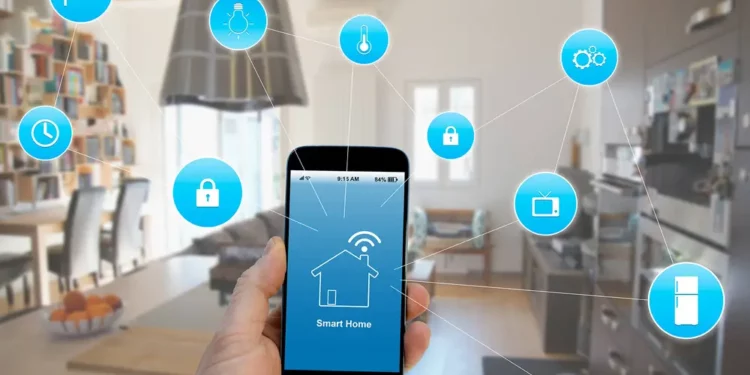In recent years, advancements in technology have transformed nearly every aspect of our lives, and the real estate industry is no exception. The concept of “smart apartments” has emerged as a result of integrating cutting-edge technology into living spaces, making them more efficient, convenient, and sustainable. As we move further into the 21st century, the future of smart apartments looks increasingly promising, with an array of innovative solutions poised to revolutionize urban living. In this article, we will explore the key trends and technologies driving the evolution of smart apartments for rent in Hialeah and the potential benefits they offer to residents and property owners alike.
Home Automation and the Internet of Things (IoT)
At the core of smart apartments lies home automation and the Internet of Things (IoT). These interconnected devices and appliances enable residents to control various aspects of their living space with a simple touch or voice command. From remotely adjusting thermostats and lighting to managing security systems and home entertainment, IoT-powered smart apartments enhance convenience and energy efficiency. Moreover, as these technologies become more widespread and affordable, property developers are increasingly incorporating them into their building designs.
AI-Powered Personal Assistants
As artificial intelligence (AI) continues to advance, so does its integration into smart apartments. AI-powered personal assistants act as a central control hub, combining data from various smart devices to optimize daily living. These assistants can learn residents’ preferences and habits, proactively anticipating their needs. They can remind residents of important tasks, handle grocery orders, and even suggest personalized entertainment options. The synergy between AI and smart apartments is set to create truly intuitive and personalized living spaces.
Energy Efficiency and Sustainability
The future of smart apartments emphasizes environmental sustainability. IoT-enabled sensors can monitor energy usage and optimize energy consumption, resulting in reduced waste and lower utility bills. Smart appliances and lighting systems are designed to be more energy-efficient, promoting eco-friendly living. Additionally, some smart apartments incorporate renewable energy sources, such as solar panels or wind turbines, to further decrease their carbon footprint and contribute to a greener future.
Enhanced Security and Safety
Security is a top priority for any homeowner or tenant. Smart apartments leverage advanced technologies like facial recognition, biometric access control, and video surveillance to enhance security. Residents can monitor their homes remotely through smartphones or tablets, giving them peace of mind even when away. Smart smoke detectors, water leak sensors, and motion detectors add another layer of safety, protecting residents from potential hazards and emergencies.
Community Connectivity and Shared Amenities
Beyond the individual apartment, the future of smart living extends to the broader community. Smart apartments will be part of integrated living spaces that offer shared amenities like smart gyms, co-working spaces, and communal gardens. Residents can connect with each other through digital platforms, fostering a sense of community and collaboration. This shared living experience is especially appealing to millennials and Gen Z, who prioritize social interactions and digital connectivity.
Health and Wellness Integration
The future of smart apartments is also deeply intertwined with health and wellness. Smart homes will integrate healthcare devices and systems, allowing residents to monitor their health more effectively. For instance, medical sensors can track vital signs, sleep patterns, and fitness levels. In case of emergencies or health-related issues, smart apartments can automatically notify designated contacts or medical professionals, ensuring prompt attention and assistance.
Augmented and Virtual Reality
Augmented reality (AR) and virtual reality (VR) technologies are likely to play a significant role in shaping the future of smart apartments. These immersive technologies can transform interior design, allowing potential buyers or tenants to virtually experience and customize their living spaces before committing.
Virtual staging and 3D visualization can showcase apartments in various configurations, allowing residents to envision different layouts and decor choices. This can save time for property developers and potential residents alike, as it reduces the need for physical visits to multiple locations.
AR and VR will also be used for interactive home maintenance tutorials, troubleshooting guides, and even virtual social events within the community. For example, residents could attend virtual community meetings or workshops without leaving their apartments, creating a more inclusive and accessible experience.
Data Security and Privacy Concerns
While the future of smart apartments presents a host of exciting possibilities, it also raises concerns about data security and privacy. The abundance of interconnected devices means an increasing amount of sensitive data being collected and shared. Property developers and technology companies must prioritize robust data encryption, secure cloud storage, and transparent privacy policies to address these concerns and gain residents’ trust.
User data should be anonymized and used only for legitimate purposes, with explicit consent from residents. Additionally, regular software updates and security audits should be conducted to safeguard against potential vulnerabilities and cyber threats.
Conclusion
The future of smart apartments is a compelling blend of technology, sustainability, and convenience. Home automation, IoT, AI-powered personal assistants, and renewable energy sources are reshaping the way we live, offering residents a more efficient and interconnected living experience. Embracing the potential of smart apartments also means embracing the responsibility of safeguarding data and privacy. As technology continues to evolve, it is crucial for developers, residents, and policymakers to work together in shaping a future where smart apartments become an integral and sustainable part of modern urban living. By striking the right balance between innovation and ethics, we can create a brighter and smarter future for everyone.
Also, Read How To Unclog A Toilet: Top Five Solutions Explained.


















